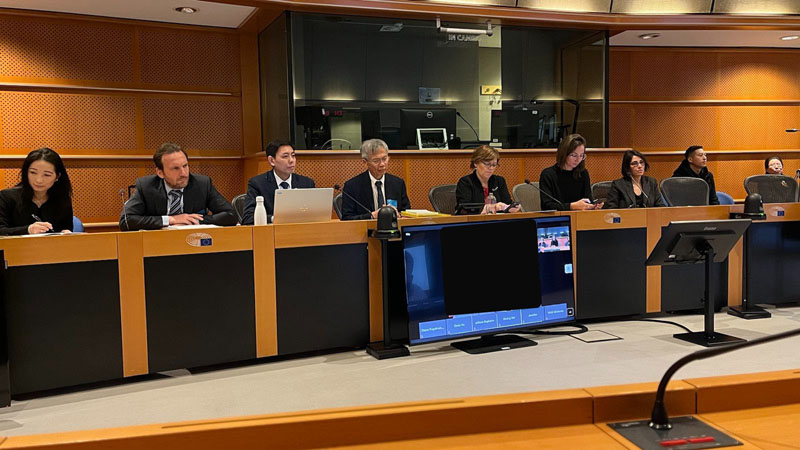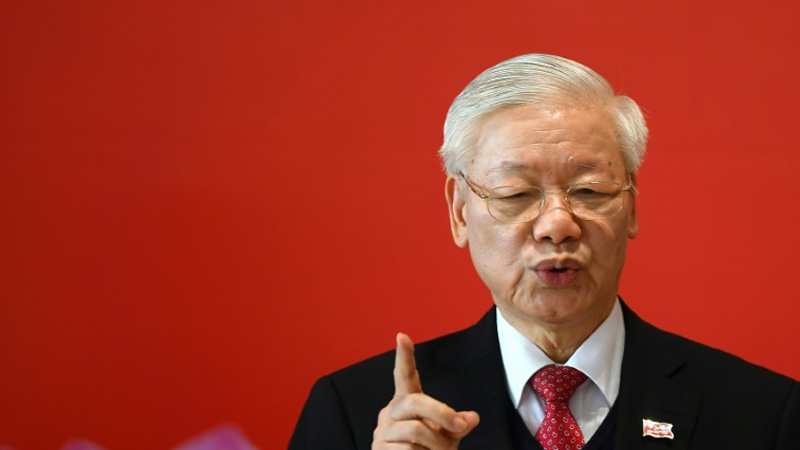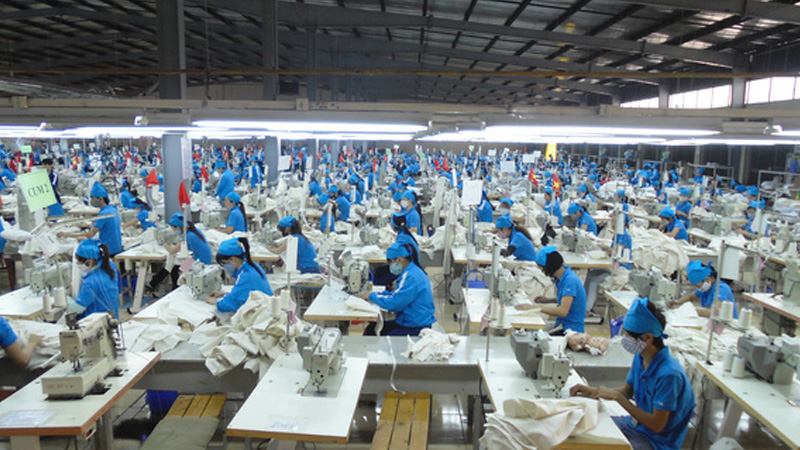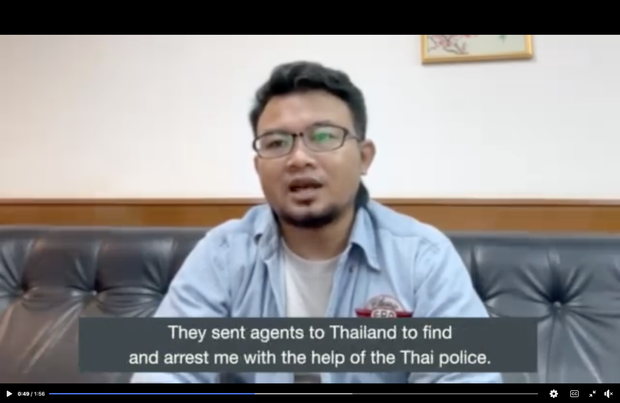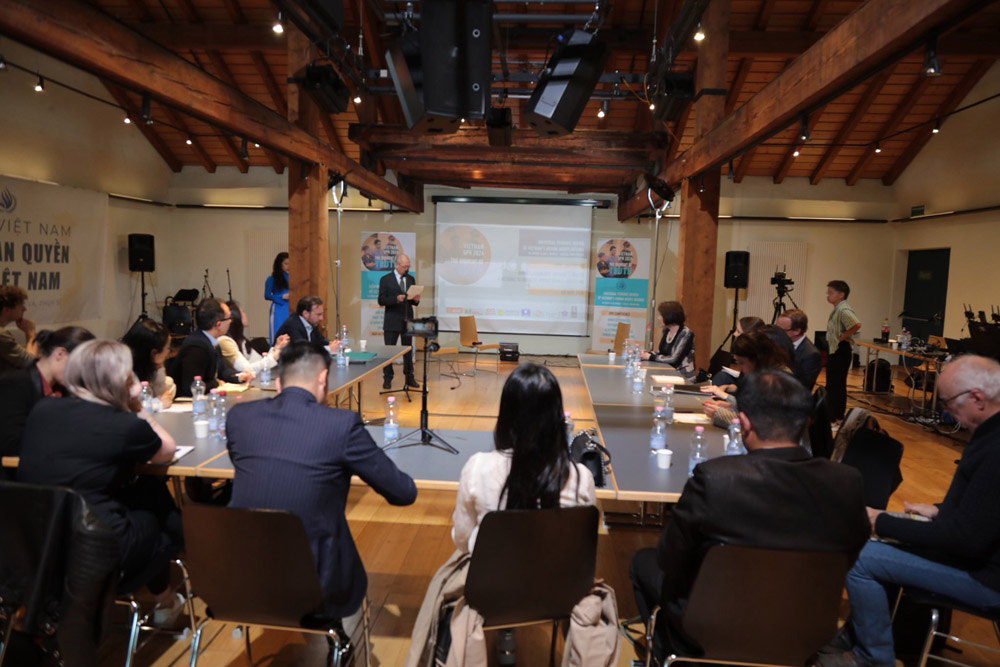Conference at the European Parliament on two years with EVFTA
On 28 February 2023, MEP Marianne Vind (S&D, Denmark) hosted a conference to discuss the state of play two years into the entry of the EVFTA at the European Parliament in Brussels, Belgium.
The EVFTA (EU-Vietnam Free Trade Agreement), signed on 30 June 2019, aims to strengthen human rights, freedom of assembly and labour rights in Vietnam, and give Vietnam frictionless trade access to Europe. The participants presented their assessment of the EVFTA and sought to answer the important question: What is really happening two years after the entry into the trade agreement?
Participants included members of the European Parliament, members of the EU-Vietnam Domestic Advisory Group (DAG) of the EVFTA, the European Trade Union Confederation (ETUC) and members of international and Vietnamese human rights NGOs such as Reporters Without Borders, the Swiss-Vietnam Committee (COSUNAM), the Vietnamese Professionals Society in Belgium, Vietnam Worker Defenders, and Viet Tan.

Marianne Vind has many years of working experience with trade unions in Denmark before being elected as an MEP. One of her key concerns is the working environment. As the host of the conference, she welcomed the audience by telling that “Today’s modern trade agreements should go far beyond dealing with traditional trade issues to include democratic principles, human rights, climate aspects and labour rights”. Vind is worried about the Vietnamese workers and their rights, especially concerning their working environment and freedom of assembly, which are requirements in the EVFTA.
Since 2019, Viet Tan and other NGOs have been alerting the European Parliament on the continuous violations of human rights and labour rights by the Vietnamese authorities. To ratify the free trade agreement, the Vietnamese authorities have been urged to release all political prisoners, repeal some articles in the Criminal Code, revise the cyber-security law and authorise independent labour unions. “Unfortunately, 4 years later, these requests are still relevant. We can even say that these requests are even more necessary than ever,” as Michel Tran Duc from Viet Tan stated.
For many people in Vietnam, the EVFTA was supposed to mean improvements in the economy, social welfare and human rights values. Yet, it has generated increased feelings of betrayal and lack of public trust, according to a testimonial speaking at the conference, who prefers to remain anonymous. Freedom of expression and freedom of media are increasingly under pressure with strict cyber-security laws, criminal sanctions and censorship of innocent people and companies. The Vietnamese government administratively has fined citizens hefty amounts, more than their basic monthly salary, for leaving critical comments online. These administrative fines have effectively been shutting down people at the grassroots level. The number of people arrested and convicted has increased in the past years. However, last year this number decreased, not because Vietnam made an effort to respect the freedom of its people, but rather as a result of years of repression.
According to Julie Majerczak from Reporters Without Borders, Vietnam is currently ranked 174 out of 180 countries on the World Press Freedom Index in 2022. It is the fourth largest jailor of journalists worldwide. Independent journalists are arrested and sentenced to several years in prison and are mistreated in prison which has led to deaths. Reporters Without Borders calls on Vietnamese economic partners, starting with the EU, to put pressure on the authorities: “The EU cannot continue to do business with such a regime until there is a shift in favour of human rights. The credibility of the EU in defending human rights is at stake”.
Since the EVFTA, no independent trade union has been formed due to the vast majority of workers having a lack of basic understanding of their rights at their workplace while the Vietnamese government is using anti-union tactics with the help of its Labour Code. Activists who speak up on the environment, labour rights, and applied to the EVFTA’s Domestic Advisory Group (DAG) have been arrested, supposedly on charges of tax violations. Huy Nguyen from Vietnam Worker Defenders, a civil society organisation focused on the welfare of workers in Vietnam, states: “Instead of giving civil society organisations time and space for cooperation and dialogue, Vietnam uses the Domestic Advisory Group framework as a corrupt mechanism to achieve its own goals”. Huy shared a video of a female worker from Vietnam who explained the poor working conditions and miserable working environment workers are experiencing. She earns less than 1.2 EUR per hour and is treated unfairly by her employers. Besides, no information from the media is communicated about the new Labour Law with the improvement in labour rights.

Besides trade access, Vietnam was elected on 11 October 2022 to the UN Human Rights Council for 2023-2025. Yet, the Vietnamese authorities are not showing commitment and effort in promoting and protecting human rights despite the clear deteriorating situation in Vietnam. Sébastien Desfayes, President of COSUNAM and Member of the Geneva State Parliament, urges Vietnam to take concrete steps in improving its human rights record, including releasing arbitrarily detained human rights defenders, holding democratic elections, guaranteeing basic rights and access to independent justice.
The trade agreement itself needs to be used as leverage according to MEP Saskia Bricmont (Greens/EFA, Belgium). “Human rights in the EVFTA is a serious element and Vietnam has been violating them”, said Saskia. The EU Parliament needs to take action with European reports on the ground.
To reflect upon the key question of the conference on the state of play two years after the ratification of the EVFTA, all participants agree that the Vietnamese government needs to be held accountable for the deteriorating state of human rights in Vietnam. Going forward it is imperative to address these areas in which Vietnam has not yet fulfilled their obligations regularly and consistently at every opportunity when speaking to high-ranking officials. The need for collaboration between the Parliament and other international organisations to work together with Vietnam’s civil society is now becoming even more important and urgent.

